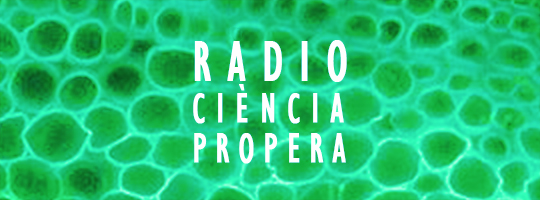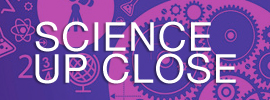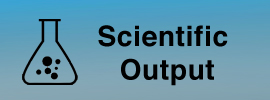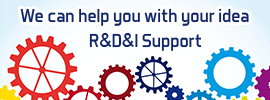As part of Science Week 2022, Campus Gandia of the Universitat Politècnica València (UPV) is set to host the exhibition “Alexander von Humboldt: In Nature Everything Is Connected”, from October 21st to November 11th in the Multipurpose Room. The aim is to bring the figure of the German naturalist to life for the students, the entire university community and society in general. This exhibition was a project designed by the Museum of Natural Sciences of the Valencia City Council in 2019, in celebration of the 250th anniversary of the birth of the Humboldt. It is sponsored v¡by the Banco Sabadell Foundation, the Spanish Foundation for Science and Technology (FECYT) and the CSIC Delegation in the Valencian Community-House of Science, in charge of organizing the traveling exhibition.

Alexander von Humboldt
The exhibition, “Alexander von Humboldt: In Nature Everything Is Connected”, consists of historical objects and information panels on the historical figure, as well as the contributions made by this researcher to the science of the time. It consists of four parts that captures the researcher’s stay in Spain, preceding his historic voyage of scientific exploration to America in 1779.

Humboldt (1769-1859) was one of the naturalists who most influenced the science of the Enlightenment. He was a pioneer in Natural History studies and his work during his historic journey was a precursor to the one that Darwin would embark on many years later, and which resulted in the Theory of Evolution. He worked with Spanish scientists, including Antonio José Cavanilles and José Clavijo, who facilitated his passage through Spain and the royal permit to travel to the territories of New Spain in 1799. During his trip through Spain, he carried out extensive scientific research of a geographical, geological and climatological nature in the regions he traveled through, testing innovative measuring instruments. With these instruments he determined, for the first time ever by scientific means, the height above sea level of cities such as Sagunto and València.

He also provided information of enormous interest for the fields of biology, geology, botany or mining. He introduced notions that became part of the concept of modernity, such as his ideas on democracy or human rights, and in the field of ecology, his concern over studying the interaction between the forces of nature and how the geographical environment influences plant and animal life.
Round table, selection of texts about Humboldt and workshops
A round table discussion related to the exhibitionwill take place on Monday, November 7th at 10:30 am in the Campus Gandia conference room. Taking part in the round table will be the Curator of the exhibition, who will give a talk about Alexander von Humboldt; the Institutional Delegate of the CSIC in the CV; the Deputy Culture Director at Campus Gandia; and Virginia Garófano, an expert in Environmental Sciences of the Campus Gandia.

The Campus Gandia-CRAI Library has selected and compiled materials on the figures of Humboldt and the Valencian botanist Cavanilles, who he had a close scientific relationship with, as a way to delve into their works. “Humboldt and Cavanilles: Scientists, Naturalists, Travelers” is a collection of materials in electronic and paper format available in the UPV Libraries, which can also be visited in the Campus Gandia Library hall. These materials are divided into:
- Studies on Alexander von Humboldt
- Studies on Antonio José Cavanilles
- Scientific expeditions
In the blog https://bibcraigandia.blogs.upv.es you can consult these materials, as well as a selection of scientific articles about these two naturalists, recommended web resources, links to their original works digitized in digital libraries or repositories, among others.
During Science Week, four workshops will also be given, from November 8th to 11th, led by Campus Gandia professor Víctor García, and taught by students of the Campus’s Bachelor’s Degree in Environmental Sciences. These workshops aim to promote the development of environmental awareness through scientific experimentation and are aimed at primary school students.
LET’S SAVE OUR BEACHES!
With this activity they will learn about the different types of waste that we can find on the beaches and in the sea water. Through interactive games, they will be able to see how garbage affects the ecosystem. When we go to the beach, we have to remember that we are not the only ones who enjoy it. So we need to respect nature!
LET’S REDUCE OUR WASTE!
If we continue to contaminate at the current rate, marine animals will soon be replaced by plastic waste. In this workshop they will learn through fun and games how the waste we generate affects the environment and various actions will be proposed to reduce this quantity.
EVERYONE WITH THE PLANET!
We will deal with different topics related to environmental problems in a fun and interactive way . Playing games, we will learn to separate and recycle. Drawing, we will learn to reuse. And through a storytelling, we will reflect and propose better alternatives.
DO YOU KNOW WHERE WHAT YOU EAT COMES FROM?
In this workshop you will learn the importance of a proper use of the Earth’s resources, since many of them are limited and, in addition, the way in which we use them determines whether or not the children of the future can also have them available.
The 2022 Science Week workshops are sponsored by the IVIO Chair.
Source: Laida Frasquet Pascual. Journalist. Office of Communication at Campus Gandia (UPV)











